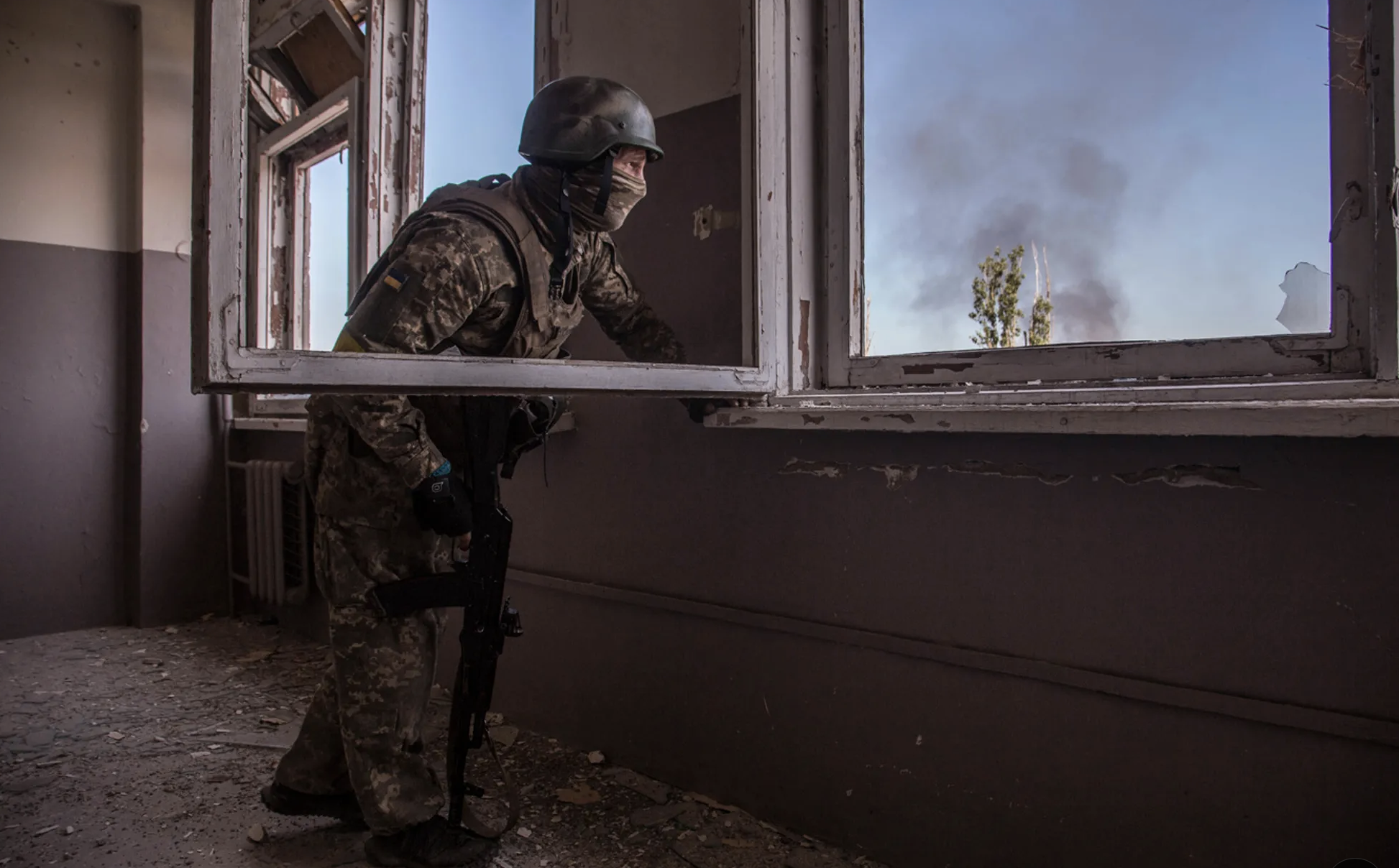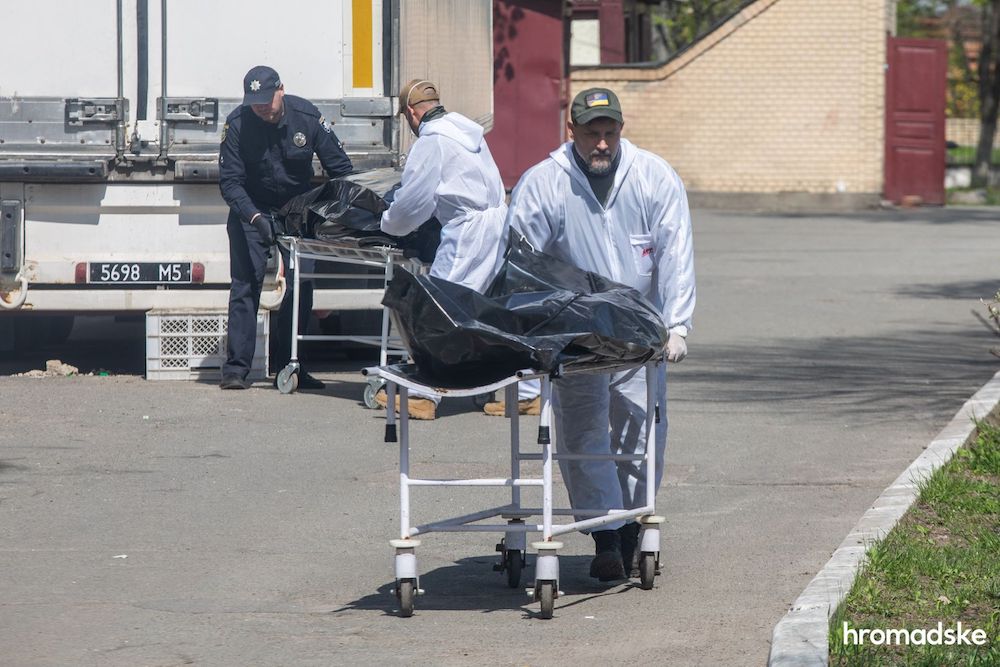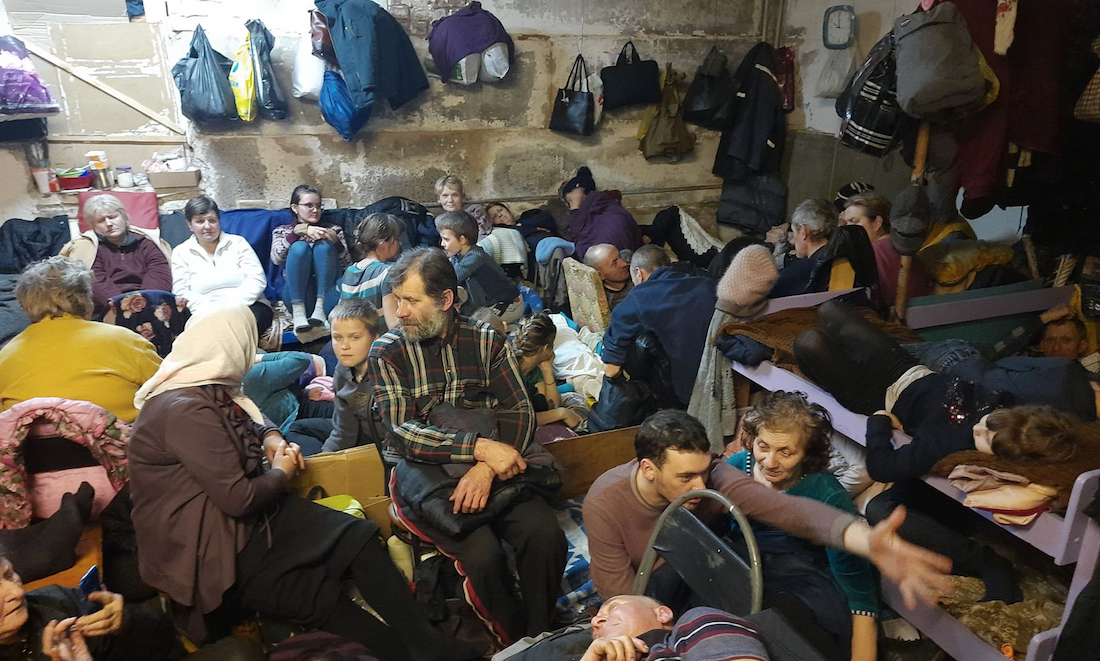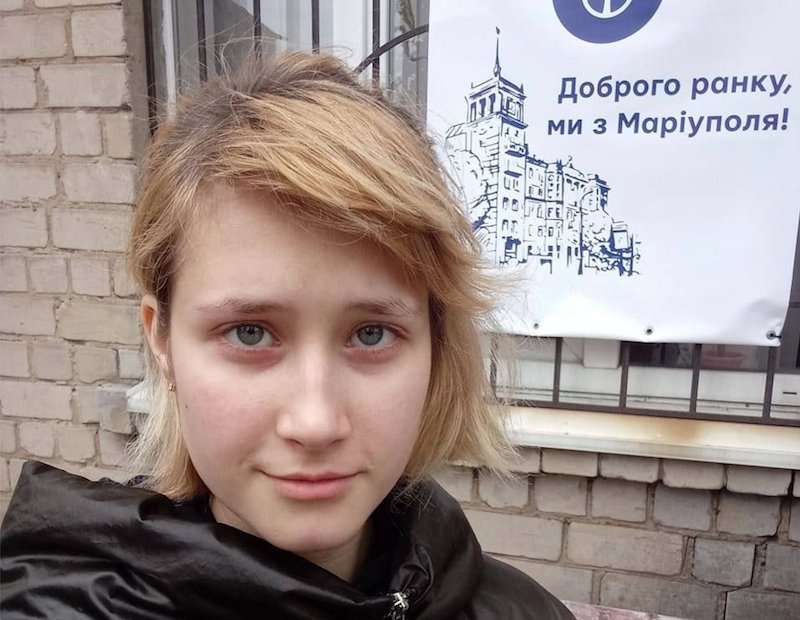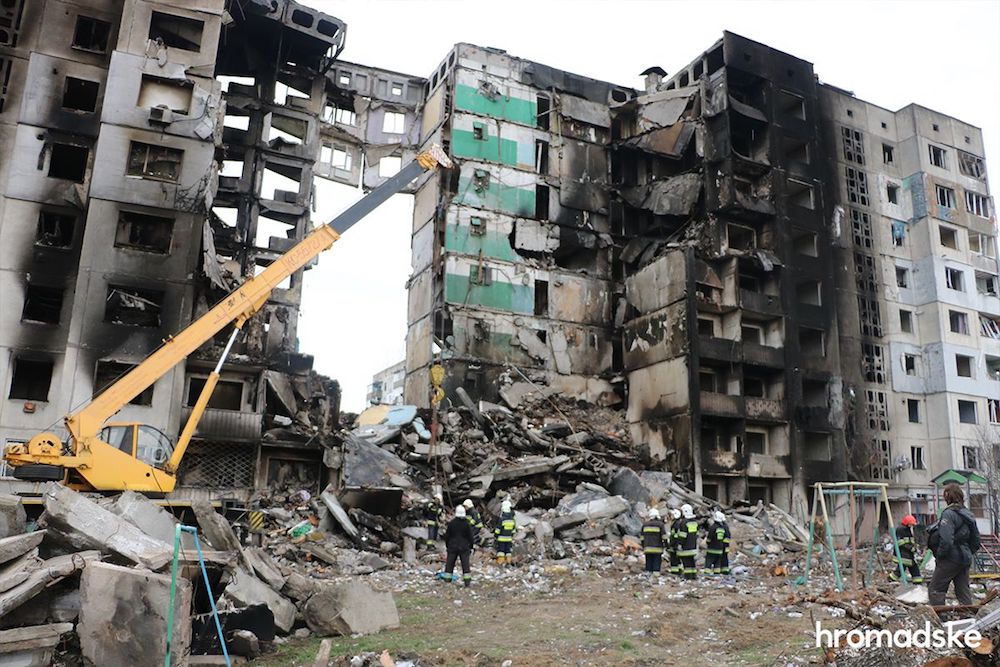The fate of Ukrainian refugees in Georgia after they fled the war-torn areas via Russia
Ukrainian refugees in Georgia
Since the beginning of the war in Ukraine, according to the Ministry of Internal Affairs, Georgia has received more than 60,000 Ukrainian refugees. Most of them are from Eastern Ukraine, the territory occupied by Russia. They fled the war through Russian territory and reached Georgia by land route.
Before arriving in Georgia, they had to go through filtration camps, the territory of the aggressor country, and many other obstacles.
The government of Georgia says that they are providing all necessary assistance to Ukrainian refugees who have arrived in the country – including housing, food, etc.
However, as it turns out, four months after the start of the war in Georgia, there is no single plan to help Ukrainian refugees and a specific department that would be responsible for managing this process. For example, there have already been cases when hotel owners refused to continue helping Ukrainian families because the state stopped paying rent.
It is not entirely clear in what status these people live in Georgia.
We will tell you how Ukrainian refugees got to Georgia and how they were able to settle down there and what they are planning on doing next – staying in Georgia until the end of the war or moving on to another country?
Ivan’s story – filtration camp and issues at Georgian border
Ivan, 33, left Mariupol with his wife and young son on March 17 after the city came under Russian control.
Their choices were limited – they could only leave the city only in the direction of Russia.
“There was chaos everywhere. Mobile operators did not work, people learned from each other where to go. We left Mariupol for Zaporozhye. I was scared, there was an eight-year-old child in my car, and I had no idea what was going to happen. There was no official green corridor. We were simply told that they would let us through”.
A huge column was driving in front of Ivan’s car. In order not to get stuck in a traffic jam, he decided to visit his parents in the village of Yalta (Mangushsky district, Donetsk region). He says that this is what saved his family – the column moving ahead of them was destroyed.
Ivan stayed in Yalta with his wife and children for almost a month. They had to go through filtering in the regional center Mangush, between Yalta and Mariupol.
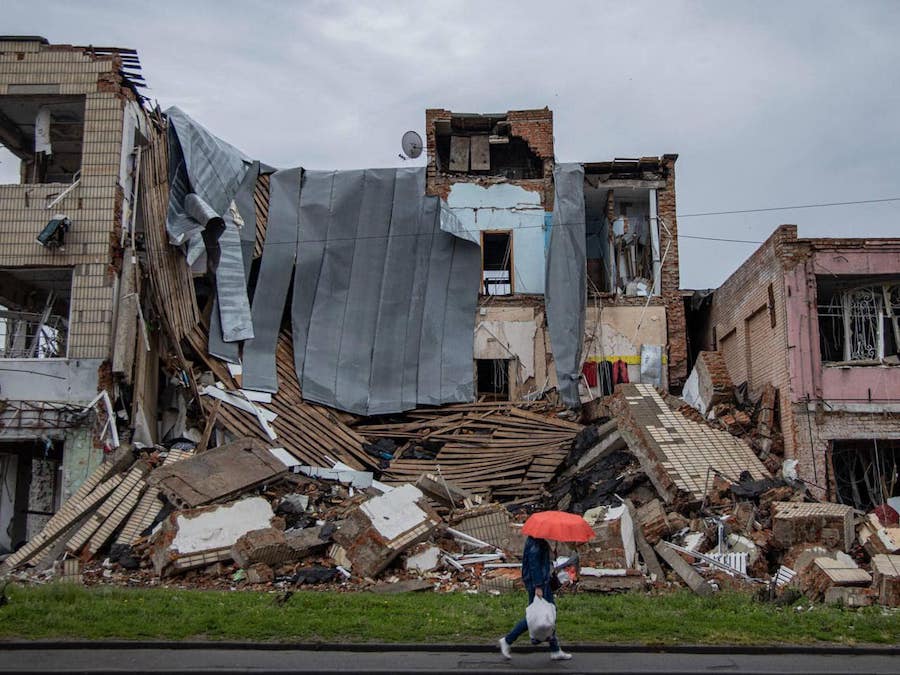
Filtration is a thorough inspection procedure in specially arranged places called filtration camps. These camps are mainly set up by the Russian military in the occupied villages of the Donetsk and Luhansk regions. It is often set up in police buildings. Ukrainians fleeing from occupied cities get here.
In the filtration camps, Russians check everything – documents, photos / videos on mobile phones, contacts, tattoos on the body, they ask a lot of questions. The purpose of this check is to find out if these people have any connection with the Ukrainian military or government services. The check often ends with beating, humiliation and detention.
Those who successfully pass the test are issued a special paper. Those who do not pass are detained. While waiting for inspection, people either spend the night in cars or in camps – on the floor or in cardboard boxes.
Without this check, Ukrainians cannot leave the occupied territories.
The Commissioner of the Verkhovna Rada for Human Rights, Lyudmila Denisova, has repeatedly publicly stated that Ukrainians are being tortured and inhumanly treated in filtration camps.
Ivan was registered 2100th on the list. Checking took time. In one month, only 190 families were “filtered”. Ivan understood that it would take a long time to wait, and gave the Russians a bribe: “I won’t say how much, but it worked. Soon we were let out of the queue”.
Before the filtration camp, Ivan already knew roughly what he would be asked about, so he was ready. He deleted all “suspicious” photos, contacts and messages from the phone in advance. The questions were mainly about whether he fought or not, and whether he had anything to do with the war. The check lasted about 40 minutes:
“They stripped me, examined my tattoos, searched my phone and computer, took my fingerprints and took pictures”.
Finally, on April 18, Ivan, along with his wife and children, left Yalta and arrived in the city of Novoazovsk, bordering Russia.
He had to undergo another check – in the Russian FSB. They were forced to spend the night in a car near the Russian border for five days. Then the standard verification procedure began again:
“They searched us again, checked our phones. Here everything was much more serious. They didn’t like my tattoo – I have a big bear on my knee. They claimed that the bear is a symbol of Russia, I explained that it was just a work of art and had nothing to do with Russia”.
Finally, this test has been passed. After that there were Rostov, Pyatigorsk and, finally, Vladikavkaz.
On the territory of Russia, Ivan’s family had passed about ten posts. The procedure was the same everywhere.
They had to go through the last inspection at the border with Georgia. Many questions were asked there – who they were, where they came from, where they were going. Already on the Georgian side, they were asked for the phone number of the person who was supposed to meet them in Georgia.

“I didn’t have a Georgian SIM card, I didn’t catch a Ukrainian one, so I couldn’t show anything. We returned to the border with Russia, turned on the Internet, and got the contacts of those acquaintances who had already arrived in Tbilisi.”
But they failed to cross the border again – the Georgian border guards demanded that everyone have travelling passports.
“I had a travelling passport, my wife did not, although we knew that Georgia accepts Ukrainians without foreign passports. So we didn’t worry about it”, explains Ivan.
“My wife and I came back, sat down and started crying. Georgia was our last hope. We couldn’t go back to Russia, we just couldn’t be where they bombed us from. There was simply no chance to return to Ukraine through Russia, no one would have let us in.
We didn’t know what to do. We returned to the border with Russia. They were surprised – they say they let everyone in, but what happened to you? We still don’t know why they didn’t let us in”.
Ivan rented a room in Vladikavkaz. All the papers he had he translated from Ukrainian, first into Russian, and then into English, and for the third time went to the border of Georgia:
“This time we were let through. We breathed a sigh of relief.”
Upon arrival in Georgia, Ivan, his wife, and his 8-year-old son were accommodated by the Tbilisi City Hall in one of the hotels. Since then they have been living in Tbilisi.
Georgia: who takes care of Ukrainian refugees?
Some of the Ukrainians who came to Georgia live in hotels allocated by the state, some are helped by individuals and private hotels, and a few stay with friends or relatives.
As a rule, most arrivals stay in Georgia for a short time and then leave for another country.
However, there is no single agency that coordinates the process of resettling refugees. The Tbilisi City Hall helps those who stayed in Tbilisi and did not find housing on their own. In Batumi, this is done by the Batumi City Hall. Batumi is the second-largest city, where many Ukrainian refugees also arrived.
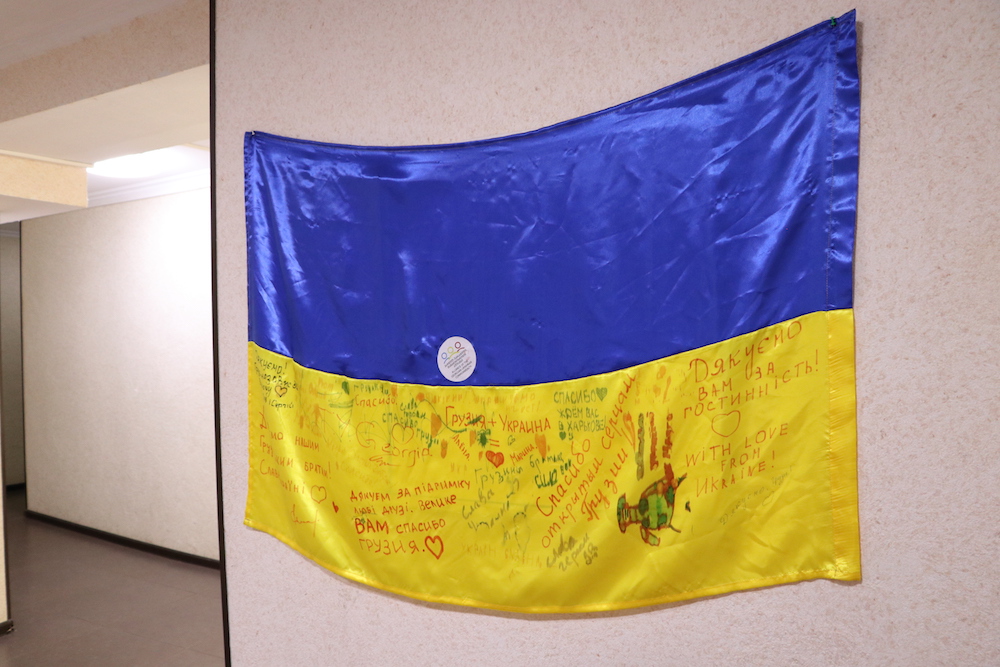
Tbilisi City Hall told JAMnews that 33 hotels have been allocated for Ukrainian refugees throughout the city. These hotels have already housed 2,671 refugees, including 636 children.
In order for Ukrainians who arrived in Georgia to receive housing from the mayor’s office, they should call a special hotline – 0 322 72 22 22.
The procedure is as follows – the operator takes down the data (how many people, their gender, age, needs, contact phone number) and transfers it to a special department. After that, this department looks for vacancies at this particular moment and contacts applicants. No special documents are required for accommodation in a hotel, in most cases an identity card is sufficient.
As of June 30, there were 100 vacant beds and 37 rooms in Tbilisi hotels.
Tbilisi City Hall pays for hotel rent and meals. A contract has been signed with the hotel owners until August 1, which means that until this date no one will evict people from there.
“After August 1, the mayor’s office will make a decision on the situation”, the public relations service of the Tbilisi mayor’s office told us.
According to it, the Tbilisi mayor’s office has already received 4,561 refugees. 2,027 of them have already left the country.
Since the beginning of the war, the mayor’s office has spent more than 9 million lari (more than $3 million) on these services.
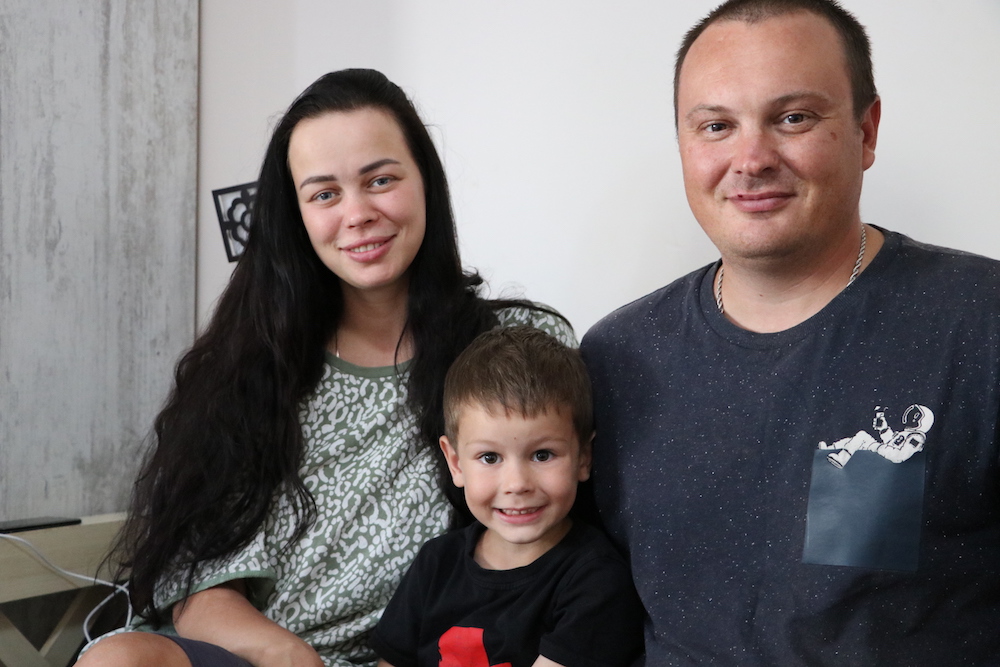
In addition to housing, by decision of the Tbilisi City Hall, for Ukrainians arriving in Georgia, travel by public transport, entrance to museums, galleries and parks is free.
In addition to the state, the private sector is also looking for housing for Ukrainians. One such example is one of the largest banks in Georgia, the Bank of Georgia, which cooperates with six hotels where it pays for rooms for refugees from Ukraine.
In order for refugees from Ukraine to get to any of these hotels, they should call the number: 0322 444 -444. The bank offers shelter to refugees for a period of one month.
The opposition political Droa party allocated two private houses, one hostel and one hotel for Ukrainians to live in Tbilisi. The party rented a hotel, while supporters donated houses and a hostel.
Since the beginning of the war, up to two thousand Ukrainians have used this housing. Most of them came to Georgia temporarily. Now there are about 150 people left in the hotel.
To take advantage of this offer, refugees must contact activists through the Droa For Ukraine telegram channel.
Natalia’s story – a journey to Georgia in a broken car
46-year-old Natalya Balabas from Mariupol was going to fly with friends on a trip to Istanbul on February 26. She was already packing when her friends wrote to her that the war had begun and all flights had been postponed. At first, Natalya did not understand the scale of the war.
“There has been a war in Mariupol for eight years, so we did not panic. We were just upset that the trip had to be postponed”.
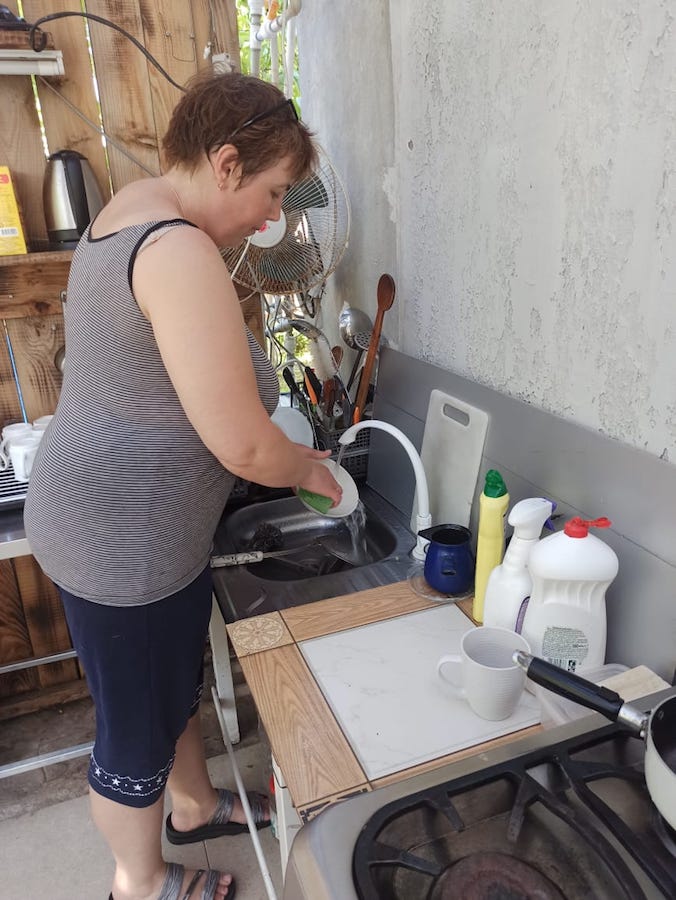
About five days later, serious shelling began. They were warned that during the curfew no light should be visible in the windows, otherwise they could be shot at. The family blocked the windows with bags and boards:
“While we had gas, I put a large pot of water on the stove and thus heated the room. Then a shell hit our house and destroyed the gas pipes.
Then we cut down trees and assembled boards. The war was getting closer and closer every day. Stores exploded all around. Fewer and fewer neighbors had been left, they were leaving every day. One day the Ukrainian military came to us and said it was time to evacuate”.
But they were late – they were not allowed through the posts.
There were seven of them – Natalya, her husband, three children, mother and girlfriend of her son. They returned back.
March 8 was quiet. On March 9, shelling began again, a shell hit a neighboring building and it caught fire. The porches burned one after another.
“On the 18th, right before our eyes, the house of my son’s girlfriend burned down. We stood together and watched it burn”.
The next morning, the son of Natalya, Kostya, and his girlfriend Nastya, said the soldier had warned that there would be heavy shelling tonight and it was better for them to leave.
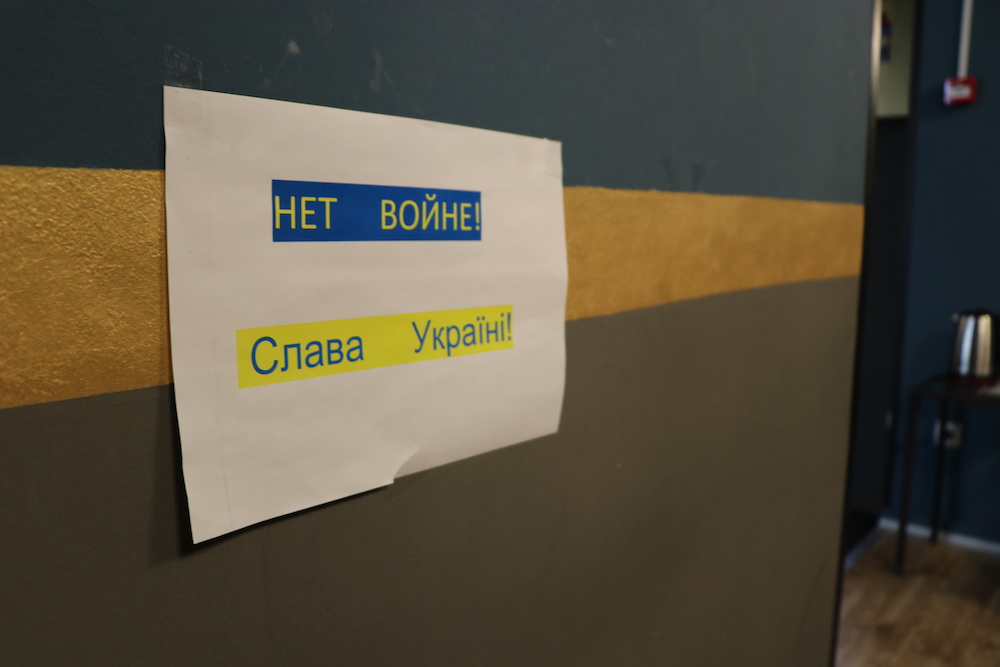
They had three hours. They were in the basement collecting things when a shell fell on their house.
“I lost consciousness for a few minutes, I didn’t hear anything, I didn’t see anything. Then I ran out into the street and saw my husband covered in blood. My sister’s son is lying on the ground and blood was pouring from his throat like a waterfall. My sister was trying to stop the bleeding with her hand. His eyes were closed, there was no pulse.
Meanwhile, my eldest boy was crawling next to me, covered in blood and screaming for me to find Kostya. In the same place, I find Kostya, lying, the fingers on his hand sagged, his face covered in blood. He could not see anything. With some effort, I was able to drag him from the yard to the entrance.
“Mom, I’m about to die, look after Nastya, please”, he told me. Blood was pouring from everywhere. I don’t remember what I did, I don’t remember anything at all.”
Natalya and her sister somehow managed to get all three of the wounded into the car – Natalya’s two children and her husband. Behind the wheel sat their neighbor – also wounded. The city was bombed without interruption. Natalia does not remember how they got to the hospital.
“I ran in screaming. There was no surgeon in the hospital. There was no water or medicine. Nobody could wash their hands. I took the old medicines from the car and gave them to the nurse.
Kostya was stripped naked. He was covered in blood, lying completely naked in the cold and trembling. I found a blanket there, it probably belonged to another patient. I stole it and covered my son with it.
All three survived. Kostya was operated on, and we left him in the hospital overnight so that the bleeding would not start again. I took my son Vova, they didn’t even have antibiotics in the hospital.
We spent the night at home. It was the scariest night of my life. The bombs fell non-stop. The shooting did not stop. Mom and sister could not make a sound, they sat in silence. My nephew was outside, under the bombs, dead”.
The next day, Natalya put the three wounded in one car, and her mother drove into another. Her car had a flat tire and broken windows, but still, they drove.
“My sister stayed, she didn’t want to leave her son’s body.”
In a broken car, Natalya drove to a small village and tried to find a spare tire somewhere, but lost her husband and son.
“The ambulance was nearby. I was told that the wounded were taken away and I could not find them”.
Natalia was looking for her husband and son for three days. Finally, they were found in different hospitals.
“Their lives were not in danger, but Kostya could not see with one eye, could not straighten his fingers. Vova could not walk. I realized that I had to leave and contacted volunteers in Georgia. We left Rostov and arrived in Georgia on April 10”.
Seven members of Natalya’s family lived in the same hotel room for a week. Then one person took them to his private house on the outskirts of Tbilisi.
Kostya had an operation on his face. However, he still cannot see with one eye. One more operation is coming. He also needs surgery on his hand. Vova is better, he began to walk.
Georgia – what is the status of those arriving from Ukraine
Both Ivan nor Natalia, like most Ukrainians who arrived in Georgia, still do not have official status.
In order for a foreign citizen who has fled his country to be granted asylum in Georgia, they must apply for refugee or humanitarian status.
According to the Law of Georgia on Refugee and Humanitarian Status, refugee status is granted to a person who fears that he or she may become a victim of persecution on any grounds (race, religion, nationality, political views, etc.) and therefore does not want to return to their country.
If a person does not meet the criteria for refugee status but was forced to leave their country due to violence, occupation, internal conflicts, etc., they should be granted humanitarian status.
People trying to obtain status are considered asylum seekers. These issues are regulated by the Migration Department of the Ministry of Internal Affairs of Georgia. Accordingly, the status applicant must apply to this department. The decision must be made within six months.
According to the Georgian Interior Ministry, in the first quarter of 2022, only 13 Ukrainians received humanitarian status. During the same period, 126 people were registered as asylum seekers.
Asylum seekers are temporarily housed in a government detention facility after registration. The shelter is designed for 150 people.
Salome Jokhadze, a lawyer for Rights for Georgia, which helps foreign citizens obtain status under the auspices of his organization, says most Ukrainians do not seek status. At least now the organization does not have such cases.
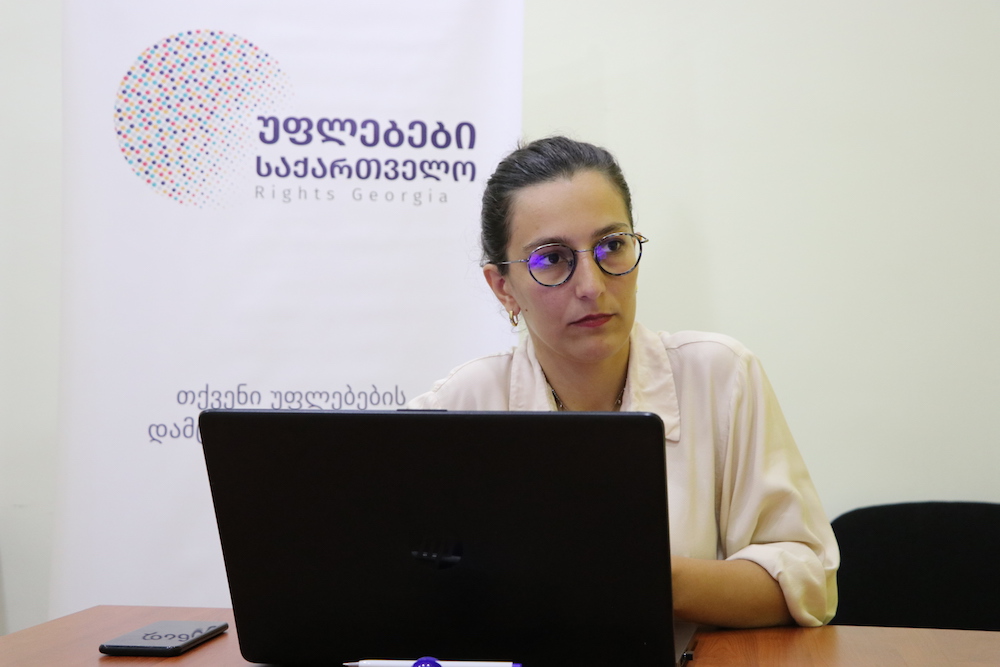
Salome explains this by several factors: Ukrainians can stay in Georgia without a visa for one year. Now, during the fighting, they are already receiving shelter. Many who come are already met by someone and provided with lodging for the night.
They also have no financial motivation because upon obtaining the status, a person receives only 45 lari (about $ 15) per month from the state. And this is a little help:
“The status is needed for those who intend to stay in Georgia for years, and this is not because of financial interest, but because of their legal status. A person with status has the same free access to various public services as a citizen of this country. For example, they will no longer have to pay for education in schools. And they get a long-term residence permit”, Jokhadze says.
Now, because of the war, kindergartens for Ukrainian children are still free of charge, and special sectors for Ukrainians have been added to some schools.
Therefore, no one is going to wait for 45 lari for 6 months. Moreover, only a few are going to stay in Georgia for a long time. In any case, all our heroes say that they are here temporarily until they complete the paperwork and leave for some other country where living and working conditions are better.
Ekaterina’s story: Mariupol – Tbilisi
Ekaterina Talalay had lived with her husband and children in Mariupol before the war. On March 19, together with their neighbors, they left the city and arrived at the village of Nikolskaya, located a hundred kilometers away. They heard that people were evacuated from the city on buses:
“Before that, we lived in the basement for three weeks. 120 people. Rockets hit our house eleven times. However, it still stood. And it is still standing.”
They were halfway to Nikolskaya on foot when the bus caught up with them. There they lived at school for three days: “Three weeks later we saw light and water for the first time”.
We left Nikolskaya on the evening of March 22. They traveled for a long time along unknown roads in a crowded bus, along with a convoy of the same refugees.
They passed filtration in Novoazovsk. They say that they were not tortured: “they just looked at the documents and everything was in order”.
However, a more serious check had to be passed at the Russian border:
“The men were taken out one at a time, checked for traces of weapons, tattoos, phones, and computers and asked a lot of questions, mostly provocative: did you fight or not, what do you think about the war, etc. Then another person came, he even took people away separately and asked the same questions again – in case someone would get confused, give a different answer, and give themselves away.
As a rule, filtration is easier for minors and children. But the son of Ekaterina, who by that time was 18 years old, was treated like an adult man:
“They looked through his whole phone: messages, photos. all. About five o’clock they checked both the son and the husband.
As soon as they crossed the border, it turned out that instead of Rostov they were taken to Taganrog:
“We found a hotel nearby. Imagine we had stayed three weeks without a shower. It was the first night when we slept on the bed and bathed. Only after you survive this disaster, do you understand what happiness is such trifles as a bed, water, and light.
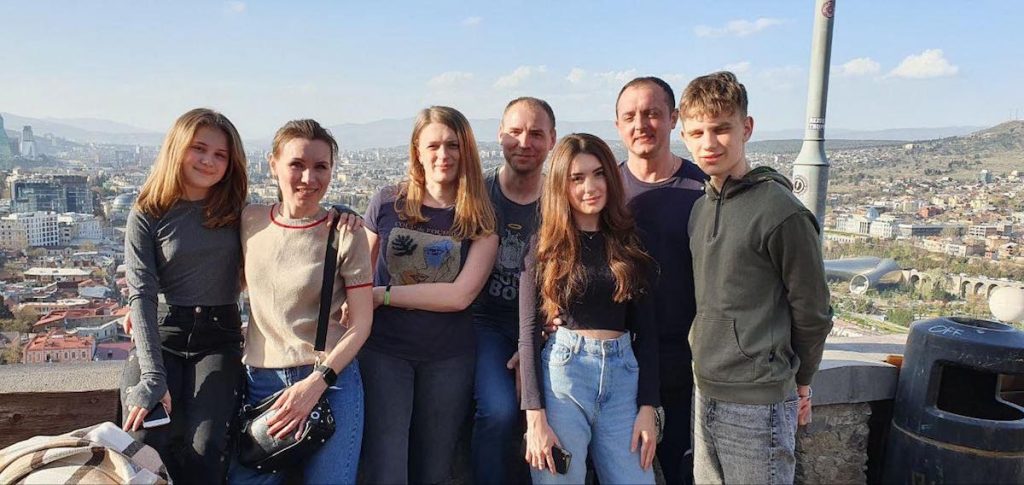
They stayed in Taganrog for two days. Then we arrived in Rostov by train. At the station we bought tickets to Vladikavkaz and went to Georgia:
“Women were easily released at the Russian border. The men were stopped again and again and asked the same questions as if they didn’t know anything”.
Ekaterina and her husband had valid foreign passports but their son’s passport had already expired. They were worried because of this, but they were lucky:
“There was another group with us that was late for the plane to Tbilisi. The border guard was confused, he thought that my son was also from this group, he looked at my son’s passport not too carefully and let him through – he did not notice that it was expired. I only realized it when he had already stamped it. We got lucky”.
Catherine’s family arrived in Tbilisi at six o’clock in the morning. They rented a hotel room. Then they found out that they could get an overnight stay for free. Now they live in a hotel in one of the suburbs of Tbilisi, not far from the Akhmeteli metro station:
“When we first heard the sound of fireworks, I jumped out of bed in a panic and screamed that Putin had come here too. They could barely reassure me that it was just fireworks amid Easter. Now I’m taking sedatives. I was assigned a psychologist.

What are the plans of the Ukrainian refugees?
No one can say for how long accommodation and food for Ukrainians in Georgia will remain free.
At the end of May, Georgian Prime Minister Irakli Garibashvili, speaking in parliament, said that Georgia had allocated $7 million in total to help Ukrainians who came to Georgia, and would allocate the same amount by the end of the year.
Unlike the beginning of the war, now the activity of helping Ukraine in Georgia has subsided a little – the number of those who organize charity marathons to help Ukraine and refugees, collect money and food, and help with finding housing and work has decreased.
Some of the Ukrainians managed to find low-paid day jobs.
Ivan and his wife work in the greenhouse from 8 am to 8 pm and earn 40 lari (about $13) per shift. Ivan says that if they did not have free housing and food, they would not be able to live off this salary. Ivan wonders how people live here with such incomes and where they get money for good cars and iPhones.
Natalya and her husband work in a private hotel that sheltered them:
“I cook, clean, do laundry, bake bread. My husband works in construction. We do what we can”.
Ekaterina’s family is not looking for work. Ekaterina, like Ivan and Natalia, is very grateful to the Georgians:
“I feel like I’m at home. My mother is in Poland. The last time she was in Tbilisi was in 1979. I constantly tell her what Tbilisi is like now and that the Georgians are our brothers. Nobody understands us the way Georgians do. We are very grateful and feel great support”, Ekaterina tells us.
“We live for free, we eat for free, public transport is also free for us. Museums, theaters, the zoo – everything is free. Clothes were brought by strangers, taxi drivers often do not take money from visitors from Mariupol. Volunteers also do a great job. They helped us a lot”, says Ivan.
But none of them associates their future with Georgia. All three families are planning to go to Canada and are collecting documents for this.
“I don’t even want to look back. I lived in a huge building, our house had 30 entrances. Now only the ruins of three entrances remain”, says Natalia.
“All I have left is a car and some money in my bank account. Now a relative from Canada is helping me: he will first rent us an apartment, and also buy tickets. The main thing is to get a visa. Then we’ll see what happens. Maybe someday we will return home”, says Ivan.
Ekaterina and her husband have already bought tickets to Canada. Her husband already got a job there:
“He will work on the installation of windows. I will find something too. My son will come later with our neighbors. We were together here, we will be together there. Something will happen”, says Ekaterina, who is still surprised by the days without bombings and explosions:
“People go to salons and shops. They have a daily, business life. It was very strange to get used to it when you know that people are being killed every minute in your homeland. I hope that one day I will overcome this stress and fears and we will start a new life”.
The families of Ivan and Natalia are also counting down the days in Tbilisi, hoping to start a new life – but not in Georgia.
With the support of the media network










